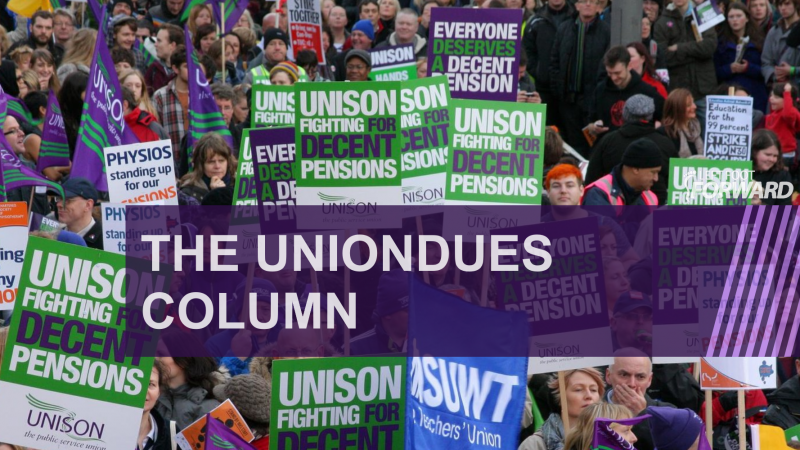Plus: Why unions can't rely on the courts.

Simon Sapper is a trade unionist and host of the UnionDues podcast.
The Supreme Court ruling last week that Uber drivers are indeed workers, and not self-employed, has rightly occupied many actual and virtual column inches, and it’s a key topic in the latest UnionDues podcast, going live at noon today.
The ruling is a great victory for the GMB and the App Drivers and Couriers Union, but in her #Thought4The Week, Professor Mel Simms makes the argument that strong collective bargaining trumps judicial decisions in safeguarding working conditions. And there is also a warning from across the Atlantic that Uber is unlikely to reform its operating model willingly or at all.
The best of the many summaries of the case, the context and the implications, is a masterful piece by Calvin Allen, and there’s a UnionDues episode on Uber’s role in passing California’s Prop 22, which essentially disenfranchised their drivers from being classed as employees and acting collectively.
The other issue remains, obviously, Covid. The PM’s statement on Monday encourages us to look to a brighter future, but the reality of trying to work safely in a pandemic is the preoccupation of a new publication from the Labour Research Department (LRD).
Its author, Andrea Oates, retells the deeply troubling statistics on enforcement: there are fewer Health and Safety Executive inspectors than MPs nowadays. Despite a joint declaration by the TUC, Confederation of British Industry and Health and Safety Executive at the beginning of the outbreak, Andrea says there is a shocking similarity when we compare the number of workplace closures and safety enforcement notices issued in the latest lockdown: zero. This despite 3000 contacts with HSE in just one week in January.
Enforcement is only one piece of a complex jigsaw, and a great attribute of the LRD booklet is that it comprehensively sets out the landscape from the perspective of workplace reps. Littered with some great case studies, we go from how the virus is transmitted in workplaces, through the various forms of mitigation that are needed when the risk can’t be eliminated entirely – PPE, administrative controls like social distancing and engineering ones such as effective ventilation.
But we can also see that political will is a decisive factor. Not just in refusing to adequately boost the number of HSE inspectors, but the threshold and level of statutory sick pay, the structure of government enforcement agencies, and maintaining a credible, effective pyramid of risk management.
Andrea makes a key point in reminding us that Covid and the effects of it will be with us for a long time, perhaps permanently. Our understanding of Long Covid is still developing and all those problems that pre-dated the pandemic will still be there after it.
I’m left reflecting that the UK labour movement is rich in many ways – including the breadth and depth of health and safety knowledge and commitment. As well as LRD, there is of course the TUC and Greater Manchester’s Hazards Centre.
Our industrial round up features LFF’s own Josiah Mortimer with a preview of his #RadicalRoundUp, plus a more detailed look at unionisation attempts in Amazon, trouble on the busses in London and Manchester, and a complete line-up of school unions and others urging significantly more caution than the Prime Minister’s one-week deadline to phase a return to school by all students.
You can access this and all episodes here.
Left Foot Forward doesn't have the backing of big business or billionaires. We rely on the kind and generous support of ordinary people like you.
You can support hard-hitting journalism that holds the right to account, provides a forum for debate among progressives, and covers the stories the rest of the media ignore. Donate today.



